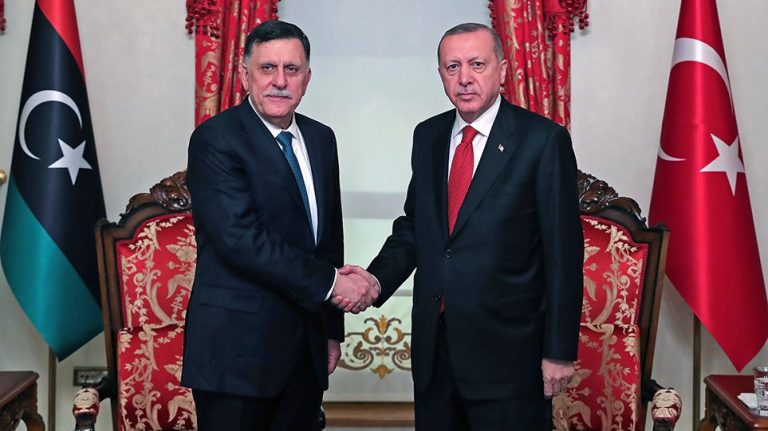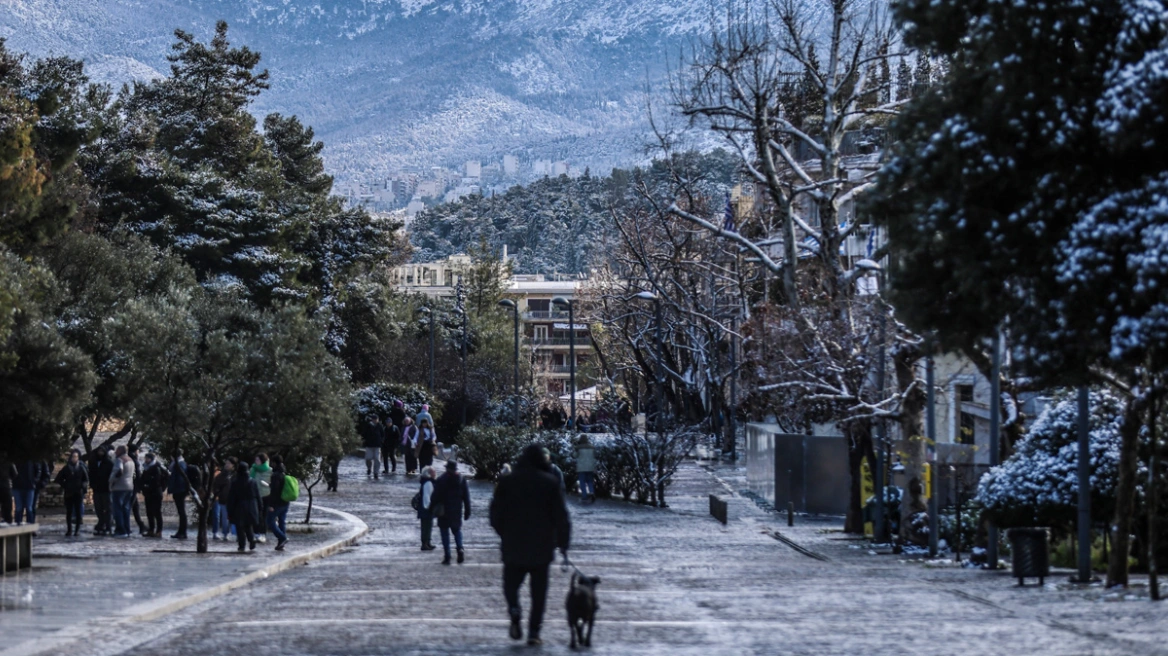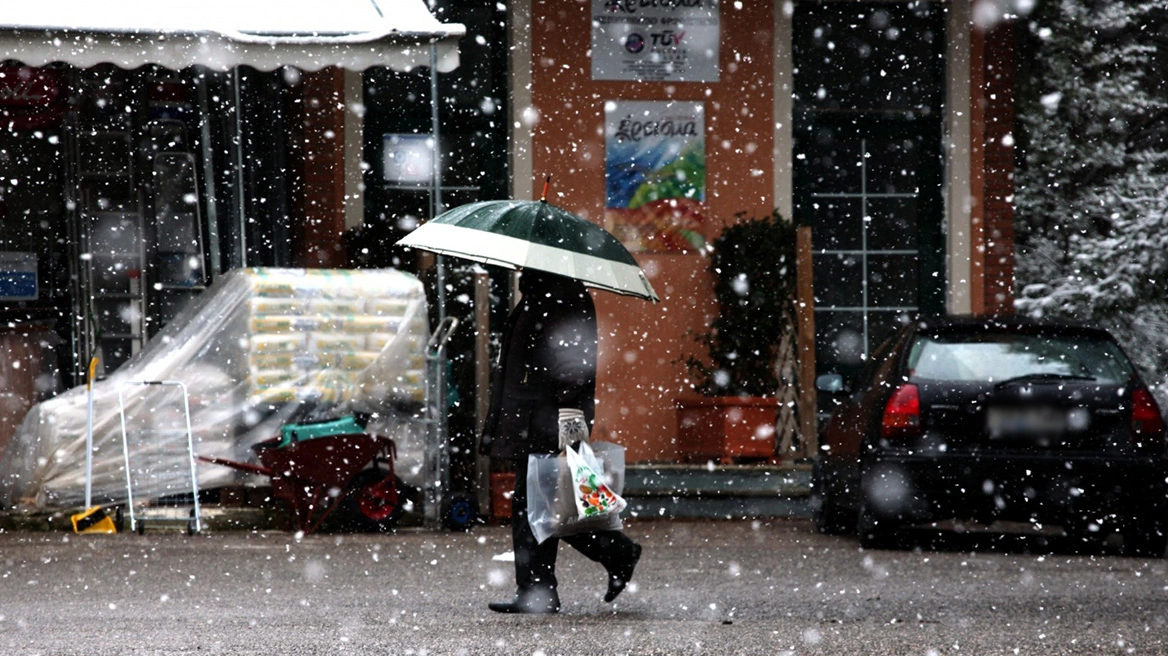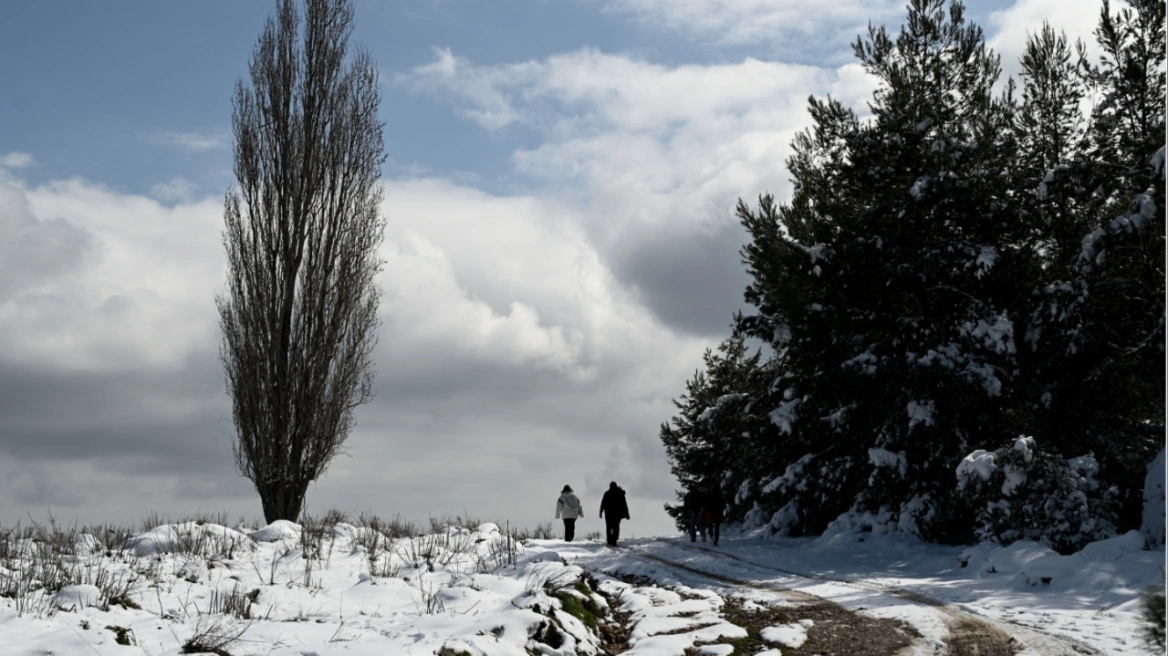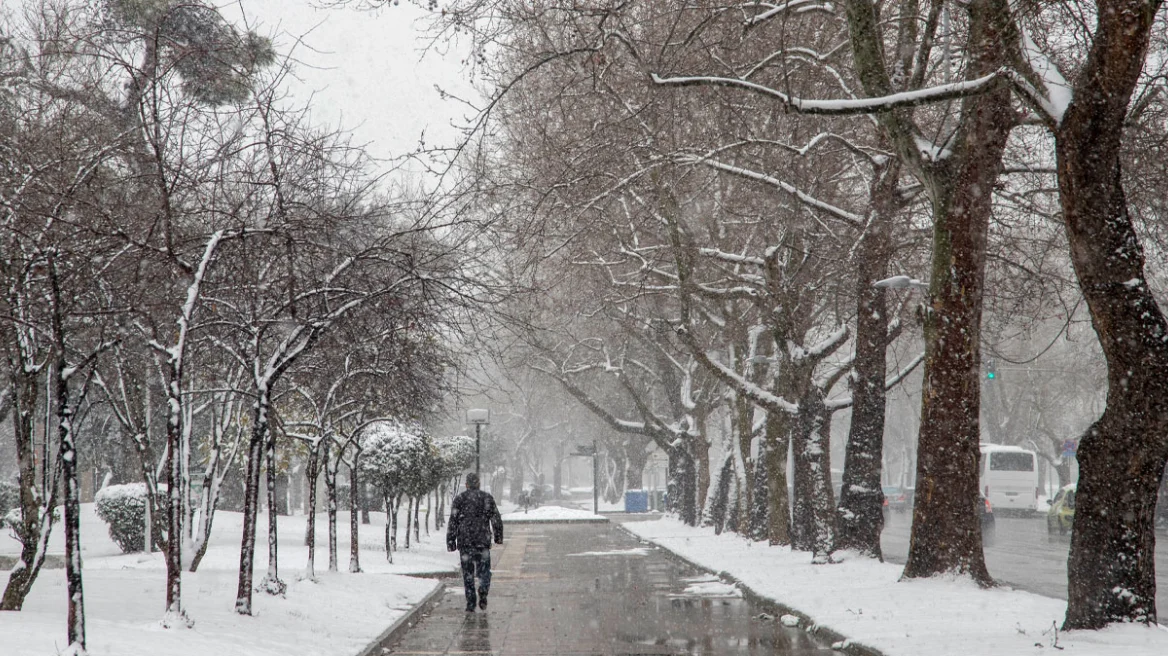Turkey and Libya have signed an agreement on maritime boundaries in the Mediterranean Sea as well as a deal on expanded security and military cooperation, the Turkish government said on Thursday.
There were no immediate details on the maritime accord, which could further complicate disputes over energy exploration in the eastern Mediterranean where Turkish drilling has angered Greek Cypriots, Athens and the European Union.
EU foreign ministers agreed economic sanctions against Turkey two weeks ago to punish it for drilling off the coast of Cyprus in violation of a maritime economic zone established off the divided island.
The dispute pits Turkey against several eastern Mediterranean states that have agreed maritime and economic zones with Greece and Cyprus, leaving Ankara searching for allies in the region.
The new agreements were signed at a meeting in Istanbul on Wednesday between Turkish President Tayyip Erdogan and Fayez al-Serraj, the head of the Tripoli-based government which Ankara is backing against a rival military force based in eastern Libya.
“The (security) agreement establishes training and education, structures the legal framework, and strengthens the ties between our militaries,” the Turkish presidency’s communications director Fahrettin Altun said in a tweet.
“We will also continue advocating for a political solution to build a democratic, stable and prosperous Libya,” he said.
Altun’s office said in a statement that the two countries signed a memorandum of understanding on the “delimitation of maritime jurisdictions”, which aims to protect the two countries’ rights under international law.
Libya has been divided since 2014 into rival military and political camps based in the capital Tripoli and the east. Serraj’s government is in conflict with forces led by Khalifa Haftar based in eastern Libya.
Haftar controls most of Libya’s oil fields and facilities but oil revenues are controlled by the central bank in Tripoli. The competing military alliances are also battling on the outskirts of the capital.
Source: Reuters
Ask me anything
Explore related questions
